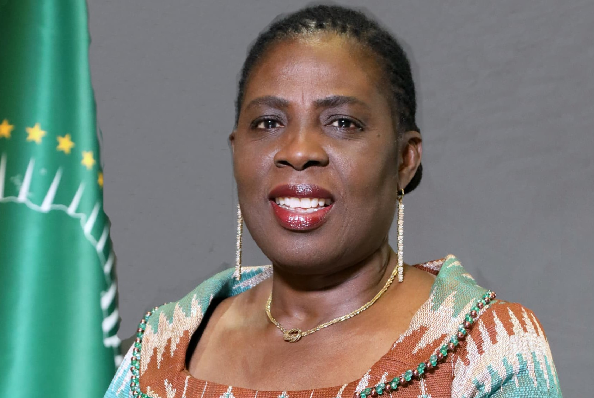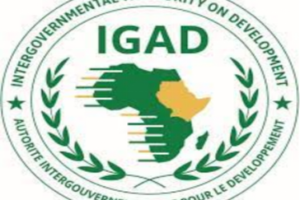
As Africa strives toward the ambitious goals outlined in Agenda 2063, the continent’s health sector finds itself at a critical juncture. While there have been notable achievements in improving public health, significant challenges remain in realizing the vision of a healthy and prosperous Africa. Agenda 2063, the African Union’s (AU) blueprint for “The Africa We Want,” emphasizes the importance of enhancing the well-being of its citizens. This comprehensive framework prioritizes access to quality healthcare, the fight against diseases, and the promotion of healthy lifestyles. However, realizing these goals requires concerted efforts to address the various obstacles that hinder progress.
To achieve Africa’s vision of self-reliance and prosperity as outlined in Agenda 2063, there must be robust political will, increased domestic financing, and the integration of tuberculosis (TB) services into broader national health and social protection frameworks. This urgent need was highlighted by the African Union Commission during a recent statement made by Ambassador Amma A. Twum-Amoah, the Commissioner for Health, Humanitarian Affairs, and Social Development, on World Tuberculosis Day.
This year, World Tuberculosis Day was marked under the theme: “Yes! We Can End TB: Commit, Invest, and Deliver.” The theme serves as a call for bold leadership, sustained investments, and concrete actions aimed at eradicating TB, particularly among the most vulnerable populations. Despite the advancements made in public health, TB remains one of Africa’s deadliest infectious diseases, disproportionately affecting women, youth, and marginalized communities. Ambassador Twum-Amoah stressed that “more remains to be done to close gaps in diagnosis, treatment, and prevention.” Emerging challenges such as drug-resistant TB, fragile health systems, and ongoing humanitarian crises continue to undermine efforts to meet both global and continental TB targets.
The Africa Health Strategy (2016–2030) and the AU Roadmap to 2030 and Beyond: Sustaining the AIDS Response, Ensuring Systems Strengthening, and Health Security for Africa’s Development provide strategic frameworks for addressing TB. The AU and its member states have committed to ensuring that no one is left behind in the fight against infectious diseases, through initiatives like the Catalytic Framework to End AIDS, TB, and Malaria by 2030.
Ambassador Twum-Amoah emphasized that achieving the vision for a self-reliant and prosperous Africa, as outlined in Agenda 2063, requires strong political will, increased domestic financing, and the integration of TB services into broader national health and social protection frameworks. She also stressed the importance of strengthening collaborations with civil society, traditional leaders, and the media to ensure that TB messages reach even the most remote communities.
The 2025 AU theme on reparations serves as a poignant reminder that reparative justice is essential in addressing the structural inequities that perpetuate the disease burden in Africa. Furthermore, the operationalization of the African Medicines Agency (AMA) presents a unique opportunity to strengthen Africa’s health security by facilitating the development, regulation, and accessibility of new diagnostic tools, effective medicines, and treatment options for TB and other infectious diseases. This initiative aims to improve access to life-saving interventions across the continent.
“The fight against TB is a collective responsibility,” Ambassador Twum-Amoah stated. “As we observe World TB Day, let this be a moment for renewed commitment, increased investments, and the tangible delivery of TB services that prioritize the most vulnerable.” She expressed the AU’s readiness to remain resolute in translating commitments into action, collaborating with member states, partners, and communities to achieve a future free from the burden of TB.
As the continent moves toward meeting the ambitious targets outlined in Agenda 2063, there is a growing call for African governments to significantly increase their financial commitment to the health sector. This plea arises in response to concerns over the changing landscape of foreign aid, especially with the reduction or cessation of programs funded by organizations like USAID, which have historically played a crucial role in supporting African healthcare systems.
Agenda 2063, a strategic framework for the socio-economic transformation of the continent over the next 50 years, highlights the need to improve the health and well-being of African citizens. However, achieving these goals necessitates the development of robust and sustainable healthcare infrastructure—something that has been hindered by the unpredictable nature of international aid.
To realize the health objectives of Agenda 2063, a paradigm shift is essential—one that moves away from dependence on external aid and toward sustainable, domestically driven financing. African governments must demonstrate their commitment by allocating adequate resources to the health sector, enhancing efficiency, and ensuring accountability. Such investments will not only improve the health and well-being of citizens but also lay the foundation for a more prosperous and equitable future for the continent.
Across Africa, a persistent issue remains: the struggle to adequately fund healthcare systems. Despite long-standing commitments, many countries continue to fall short in allocating the necessary resources to the health sector, prompting renewed calls from the AU for increased domestic funding. The 2001 Abuja Declaration, in which AU member states pledged to allocate at least 15 percent of their national budgets to health, remains a critical benchmark. However, reports indicate a significant gap between this commitment and the reality on the ground. According to a UNICEF report, government allocation to the health sector increased slightly from 8.1 percent in 2022/23 to 8.3 percent in 2023/24. Despite this modest increase, this figure remains far below the 15 percent target set by the 2001 African Union Abuja Declaration.
In conclusion, as Africa continues to confront these complex challenges, the path forward lies in a unified and determined approach that prioritizes health as both a fundamental right and a cornerstone of sustainable development. Only through increased investment, collective action, and innovative solutions can the continent hope to achieve the health goals outlined in Agenda 2063 and secure a brighter future for all its citizens. Political will and government commitment are crucial to the success of this endeavor. Governments must act decisively, using both financial and political resources to overcome the challenges and set the continent on a path toward achieving the health objectives of Agenda 2063.
The health sector’s revitalization will require concerted efforts across various levels, including grassroots organizations, local governments, and national authorities. A key part of this effort will be tackling systemic issues that hinder the efficiency and accessibility of healthcare services. These include inadequate healthcare infrastructure, insufficient medical supplies, and the uneven distribution of healthcare professionals across urban and rural areas. Political commitment to addressing these challenges is paramount.
Beyond the integration of TB services, which remains a central concern, the broader health agenda requires a focus on strengthening primary healthcare systems across Africa. These systems are vital for ensuring equitable access to quality healthcare for all citizens, particularly in underserved areas. The private sector and international partners also play an essential role in this process by providing technical support and investment in health infrastructure.
Ultimately, the success of the African health sector depends on the ability of African governments to not only commit to ambitious health goals but to implement policies and strategies that address the root causes of poor health outcomes. This means tackling the social determinants of health—such as poverty, education, sanitation, and access to clean water—while ensuring that health services are available, affordable, and accessible to all. Through these combined efforts, Africa can make significant strides toward achieving the health goals set forth in Agenda 2063, thus contributing to the broader socio-economic transformation of the continent.
In sum, Africa’s health challenges are deeply interconnected with the political will and government commitment to health financing, system strengthening, and sustainable development. If these factors are effectively addressed, the continent will be poised to make significant progress toward achieving the health-related goals of Agenda 2063.
BY EYUEL KIFLU
THE ETHIOPIAN HERALD THURSDAY 27 MARCH 2025




